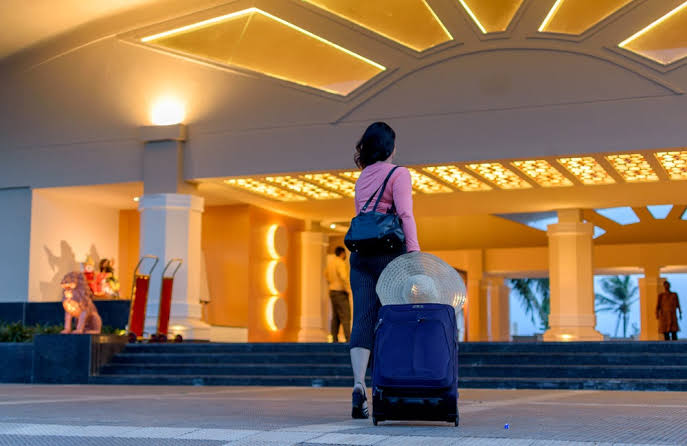India’s hospitality sector is witnessing a major shift as leading hotel chains expand into Tier-two and Tier-three cities, generating employment and fostering local development. Companies like Indian Hotels Company (IHCL) and ITC Hotels are not only creating job opportunities but also investing in skill development and encouraging reverse migration, allowing employees to relocate to their hometowns.
IHCL recently signed a memorandum of understanding with Goa’s skills department to establish India’s largest hospitality skilling center. This initiative will enhance the tourism ecosystem by training local talent in Goa and neighboring regions. As IHCL extends its presence into cities like Jamshedpur, Nagpur, and Kumbalgarh, it prioritizes workforce skilling to meet the rising demand in the industry.
Similarly, ITC Hotels is leveraging its expansion to facilitate reverse migration, helping employees relocate to their hometowns for a better work-life balance. The company also partnered with over 300 institutions last year, offering structured internship programs to more than 5,000 students.
Also check:- Zomato Food Delivery CEO Steps Down; Deepinder Goyal to Take Charge
This growing trend of hospitality expansion into smaller towns is fueling local economies by retaining skilled workers and fostering sustainable growth. Urbanization has long dominated economic progress, but a shift toward unexplored locations is now reshaping migration patterns. Professionals, entrepreneurs, and retirees are moving away from bustling cities to quieter, developing regions, bringing economic and social transformation.
By investing in skill development and supporting reverse migration, hotel chains are not just expanding their businesses but also strengthening the foundation for long-term growth in India’s smaller towns.
Remote Locations: From Isolation to Investment Hubs
Before remote areas received no recognition for being too distant from economic activities, they have now experienced a remarkable transition. Digital work flexibility alongside growing tourism along with changes in lifestyle preferences drive the transformation of these areas. Countries including India, along with the United States and Eastern Europe, invite investors to their rural regions, which drives up the number of boutique hotels and hospitality and resort operations.
Key Drivers of Reverse Migration
The reverse migration trend is powered by multiple converging factors:
- Remote Work Culture: The ability to work from anywhere has empowered people to seek destinations that offer better affordability and quality of life rather than merely proximity to corporate offices.
- Affordability and Quality of Life: Rural and semi-urban areas often provide lower living costs, a slower pace of life, and increased access to nature, making them desirable for professionals looking for work-life balance.
- Investment in Tourism and Infrastructure: Governments and private investors are recognizing the potential of untapped regions, pouring resources into improving connectivity, amenities, and hospitality infrastructure.
- Cultural and Heritage Revitalization: Many individuals returning to their hometowns are investing in revamping heritage sites, traditional hotels, and eco-tourism projects, boosting local economies.
Success Stories: Transforming Remote Regions
An active governmental policy combined with the rise in boutique hotels has allowed Spanish villages suffering from population decline to welcome new residents.
India experiences a permanent settlement of people in its hill stations and coastal towns, which drives the development of locally operated hotels alongside expanding co-working facilities.
States such as North Carolina along with Montana welcome city residents who invest their entrepreneurial skills toward developing tourism enterprises in their scenic landscape.
Challenges and Future Prospects
The positive prospects of reverse migration encounter several drawbacks when considered together.
Fast growth creates excessive strain that limits local resources through their insufficient capacity to maintain healthcare facilities and develop housing.
Tourism growth without regulation leads to deforestation along with ecological contamination of surroundings.
A large number of governments require updated public policies that support remote workers along with sustainable tourism development.


